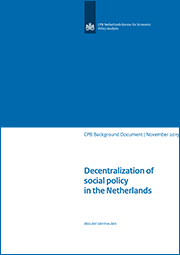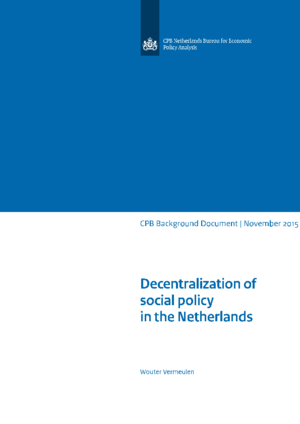Decentralization of social policy in the Netherlands

The grant design incentivizes municipalities to minimize expenditure on their new tasks, which may yield efficiency gains but also entails a risk of underprovision. The ever larger role of municipalities in social-service provision fosters the exploitation of economies of scope, but some important interactions with policies for which other parties are responsible remain. In particular, health-care insurers become partly responsible for the provision of home care and institutional care remains a central government task. This may induce underprovision of municipal services and substitution towards services provided by other parties. Finally, the efficient scale for provision of some of the decentralized services, such as specialized youth care, appears to exceed the size of many municipalities. A brief discussion of policies to take optimal advantage of the opportunities and mitigate the risks concludes the paper.
